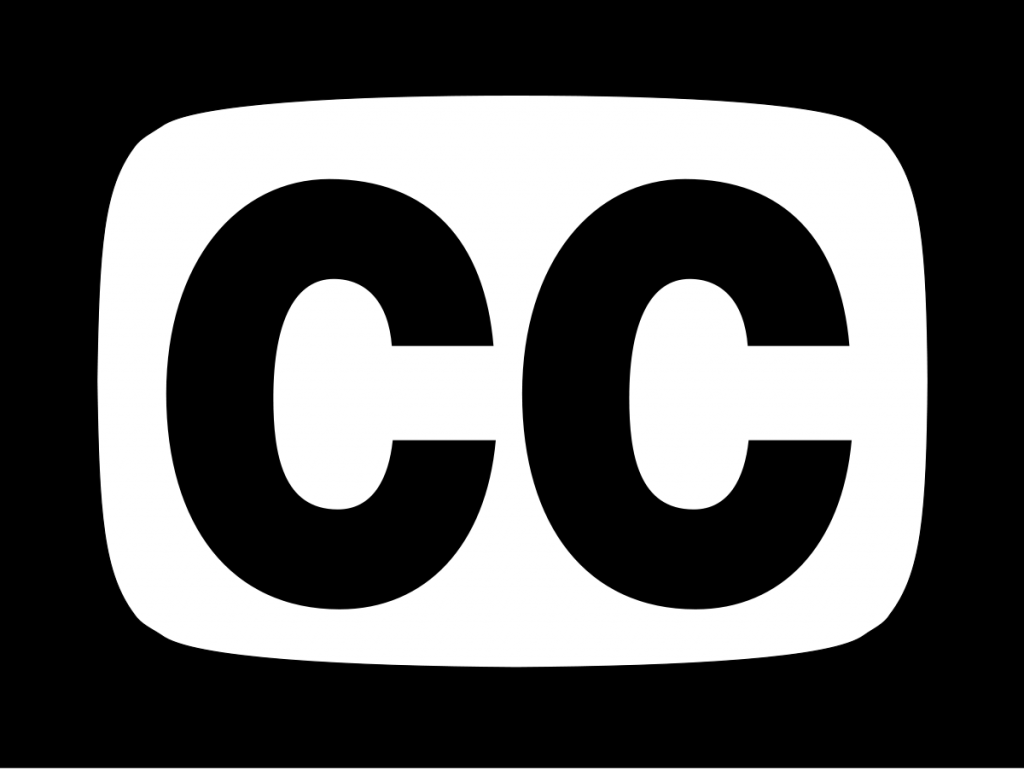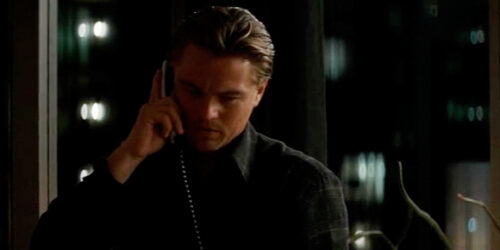“The main factor that drives captioning quality is what clients are willing to pay for it.”

Recently, I received a thoughtful email from a professional closed captioner with over a decade of experience. Her message raises some important questions about the economics of closed captioning. She’s given me permission to post her message here, provided her contact info is removed and in the hopes that viewers will take a more active role in telling broadcasters and companies what kinds of captions they want.
[Edit, 5/18/12: The writer sent me a slightly revised version of her email, which I have included here in place of the original.]
_______________________
Good afternoon Sean,
The company I work for does only offline captioning. We pride ourselves on our accuracy, consistency and research. For this reason, we ask for a longer turnaround time for long-form captioning, and we charge more for CC than a lot of other companies. The result is that we don’t get the same volume of work that cheaper outfits get.
In my 14 years in this field, I’ve come to the conclusion that the main factor that drives captioning quality is what clients are willing to pay for it. I regret to say that most clients – whether it’s for commercials, series, films or whatever else – see captioning as that mandatory last step that has to get done as a condition of their materials going on air. The vast majority of them do not care what the captioning looks like, as long as it gets done in time for the stations to receive their captioned masters. Clients will often choose to go to cheaper captioning houses who promise to get their feature film captioned in a day. And when a captioning company charges low prices on high volumes of work, it’s because they hire lots of people at low wages.
Let’s look at this sentence by sentence:
Most clients see captioning as that mandatory last step that has to get done as a condition of their materials going on air.
As you know, captioning is a mandatory requirement. It’s a step in the post production process that is best left to the very end. Indeed, it’s much better to caption a final master than one where the graphics or the music & effects are incomplete. In the case of series, clients with established track records know how much time to allocate at the end of the production line for us to do our work. That’s an ideal circumstance, one that allows us to insert their episodes in our weekly workflow and do the best job we can. Other clients know how much time we need, but demand we cut it down to only a day. They provide us with “advance” materials – script, unfinished master – ahead of time, and then on the day the master has to be at the station, they send in their final master and we have to encode our incomplete file to it. In such circumstances, we also have to forego a final quality check on the encoded master.
In the case of feature films, we often get requests from clients who need to have their materials captioned within 48, sometimes 24 hours. If we agree to this, it means everything else we have on the go has to take a back seat to this rush job, and it means we have to cut corners in quality. We don’t often agree to such requests, but there are many places that do so happily. When we do agree, it’s usually because one of my superiors at the company (not captioners themselves, but people who oversee all the other services offered) has decided we’re taking on this job, period. I can make all the arguments in the world for why we shouldn’t agree to rush captioning jobs, but… money often speaks louder than me.
The vast majority of clients do not care what the captioning looks like, as long as it gets done in time for the stations to receive their captioned masters.
The vast majority of them do not watch shows with the captions on, and they don’t know anyone who’s deaf or requires captioning for one reason or another. Clients don’t have first-hand experience of bad versus good captioning, therefore it doesn’t matter to them if we use roll-up or pop-on, whether we caption verbatim or edit, or even whether we know how to spell! Not only that, but often, the other players in the production line will require more time to do their bit, or will encounter delays; they will be allowed finish their part of the post production process at a later date. But when the master comes to us, sometimes 3, 4, 5 or more days late (often on the same day that the master is due at the station), clients expect us to get the captioning done and send the finished master off to the station on that same day. In other words, other post production service providers often take up more time at our expense.
That being said, there are many clients who do appreciate that we make every effort to caption their shows accurately and intelligently. In fact, some of them care so much about the captioning that they tell us how to caption… and they don’t care that what they’re asking us goes against basic rules. We’ll try explaining to them why we would rather not do it the way they ask, but if they insist, well – it’s their money. And we don’t want to lose their business.
Some clients demand to see the captioning before it’s shipped out. We have to follow the as-recorded script exactly word for word, including punctuation. Sometimes they’ll ask that we caption something in a blatantly inconsistent way, in order to serve their brand. In January 2011 [link] you asked:
But how far should they [the clients] be able to go in imposing their will on the display of captions? Should design and typographic decisions be driven by companies or by the needs of caption users?
I’ve been grappling with this for years. We always strive to balance the needs of the deaf and the hearing-impaired with clients’ requirements; but because clients pay, and users do not (at least not directly), if a client decides to have us do an awful mess of their captions, they win. The best we can hope to achieve before this happens though, is to convince them to let us do it our way.
At the other end of the spectrum we have clients whose sole concern is saving money. Some clients do the captioning themselves; we’re asked only to encode their files and ensure the captioning is in sync with the audio – that’s the extent of the quality control. I predict that more and more cable TV shows will be captioned that way, as more people figure out they can use free software off the internet to caption their own shows at no cost.
Clients will often choose to go to cheaper captioning houses who promise to get their feature film captioned in a day.
When time and/or money is of the essence, clients don’t want to hear us bemoan the fact that the quality will suffer. That’s why there is no shortage of captioning houses who use roll-up for everything and do next to no quality control, who will be happy to get the business of these clients. These captioning houses have a large volume of work and will forego a final quality check on the captioned master itself (for garbled or missing captions, for that last attempt at catching a spelling error, a wrong homophone, a misidentified character, etc.) Over the years we’ve had several clients who, even though they were pleased with the quality of our work (which includes excellent research), were forced to switch to a cheaper CC provider, because that’s what their bottom line dictates.
When a captioning company charges low prices on high volumes of work, it’s because they hire lots of people at low wages.
In order to attract other services, some places will offer the captioning at a low price, which means the CC will be done by someone with no real understanding of it. A couple of years ago, I came across a company that was offering free captioning with the purchase of their other HD services. How are we supposed to compete with free captioning? In some places the captioning gets done by a tape operator here, a transcriptionist there, or the receptionist, or what have you; they feed the client’s script to the software, assign automatic time-codes, and voilà – done and done.
It’s often said that captioners don’t seem to understand the subtleties involved in making TV accessible to the deaf and hearing-impaired. One well-known advocate [Joe Clark] has often complained that in Canada, the “typical captioner is a woman in her 20s with a liberal arts degree” – with such credentials, how can anyone expect the state of captioning to get better? I’ve always wanted to tell that person that, due to the overall perception in the industry of what it takes to caption, this job is considered an unskilled, entry-level job with a salary to match. Which means the people who will apply for the job are fresh out of college, have little work and/or life experience, and are the kind of people who like to read, write, and watch movies: someone in their 20s with a liberal arts degree. Women apply for the job in far greater numbers than men. Meanwhile, more mature people with all the right qualifications expect a much higher starting salary than we can offer, so I can’t hire them.
And it’s not just outsiders who don’t understand that it’s hard to get quality captioning out of people with not much experience. Some people at my company will offer to “lend” me one of their unpaid interns to do the quality control, in case I’m too busy to do it myself. Imagine that – having someone who knows nothing of our processes, do the most important part of my job!
I realize this is all just the business side of captioning. But the business side, by and large, dictates the kind of captioning we get. We strive for better practices, we defend our practices in the face of indifference, but we often have to settle for less than we’d hoped for. Captioning will get better when users demand better captioning; but in order for that to happen, an awful lot of users will have to make themselves heard.
Regards,
[Name removed]
[Note: Information in brackets has been added by me. ~Sean Zdenek]






If you’re going to quote me or quite someone quoting me, do it by name.
Joe,
I inserted your name in brackets and linked to one of the pages on your site that includes the reference. Thanks!
Sean
As a woman in her 30s with a BA in Liberal Arts* who was in her 20s when she was working as an offline captioner, I’m a bit baffled by the tone of the last few paragraphs. What qualifications are they looking for? I don’t know of any institutions that offer a degree in captioning, and most realtime captioners (which most people would agree is significantly harder to do well than offline, because there’s often less time to consult reference materials, so more of the rules of spelling, punctuation, and captioning style need to be internalized and at one’s fingertips) only have an associate’s degree. Good captioning comes from good training and dedication to the craft, and most literate college-educated people can learn it if they choose to.
That aside, I agree with pretty much everything else in this article. The fundamental problem is that the people who pay for these services are by and large not the people who use these services, and they’ve shown time and again that they’re willing to forgo quality for the sake of a price cut. It’s very disheartening. I can only hope that as the Baby Boomer generation starts using captioning more and more often, they’ll create a significant market force that holds companies accountable for providing quality captioning, and that affects their bottom line when they cut corners. Without the influence of caption users and their wallets, this downward trend of cost and quality is only too likely to continue.
—————
*Which required me to read, discuss, and write papers on the following books over the course of four years: http://en.wikipedia.org/wiki/St._John%27s_College_%28United_States%29#The_Great_Books
Mirabai,
As a “man who received a liberal arts degree in his 20s” (a long time ago), I struggle with the criticism of the liberal arts. In many ways, the liberal arts have provided me with just the right kind of training to manage the demands of modern life and many of the demands of captioning (as I have come to understand them).
But I think what’s key to the criticism is the claim that most (new) captioners have “next to no life experience.” Here’s the full quote from Joe Clark:
I’m not sure this is fair either, but I have to admit that it makes sense in the context of a TV show like Family Guy, which I think I would be ill-equipped to caption if I were in my 20s today. Too many of the pop culture references are located in the 1970s and 1980s. Captioners need to be pretty knowledgeable of the world to recognize and know how to caption allusions to sounds of the past.
Your question is an excellent one — paraphrased as: If not the liberal arts, then what are captioning companies looking for? — and I’d love to hear more responses to this question. In interviews I conducted with captioners (and continue to conduct!), I believe all the participants had degrees in the liberal arts (journalism, theater, English, Communication Studies).
Sean
If you want to caption competently, you cannot be:
Someone doing captioning until something better comes along or because it’s the only job vaguely related to your B.A. (Hono[u]rs) English degree.
Someone with so little life experience, and experience watching TV of all kinds, that you do not automatically know what people are talking about and know up front nearly every single term they use.
Someone who at any level thinks you can just look that up when you get a chance.
You have to have enough experience and literacy, cultural and otherwise, to understand what people are saying exactly when you hear it. You then have to know exactly how to render all those words. You cannot sit there and guess. And, as a typical young woman with a B.A. (Hono[u]rs) History would do, just write shit down phonetically because you don’t understand it and you’ve got a quota to meet.
That’s why a workforce of young people, mostly female, with commercially-useless liberal-arts degrees are actively harmful to captioning.
Clear?